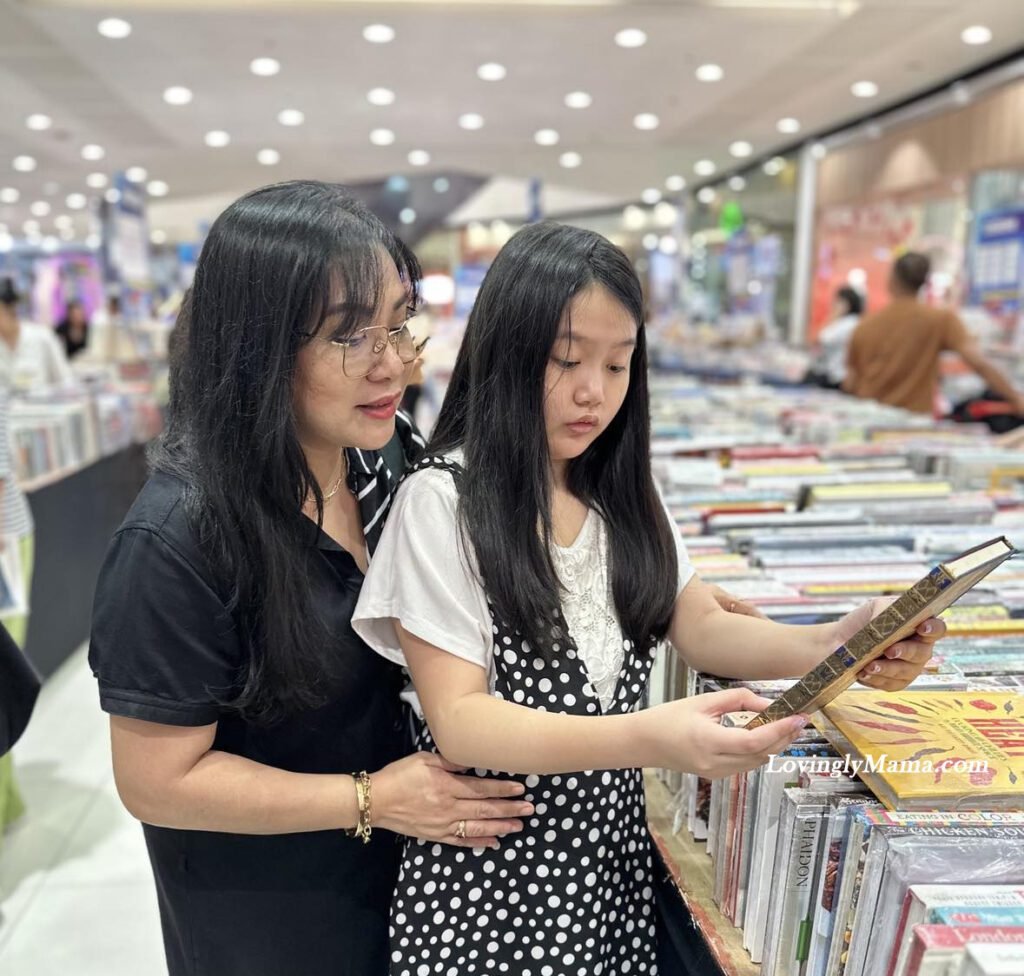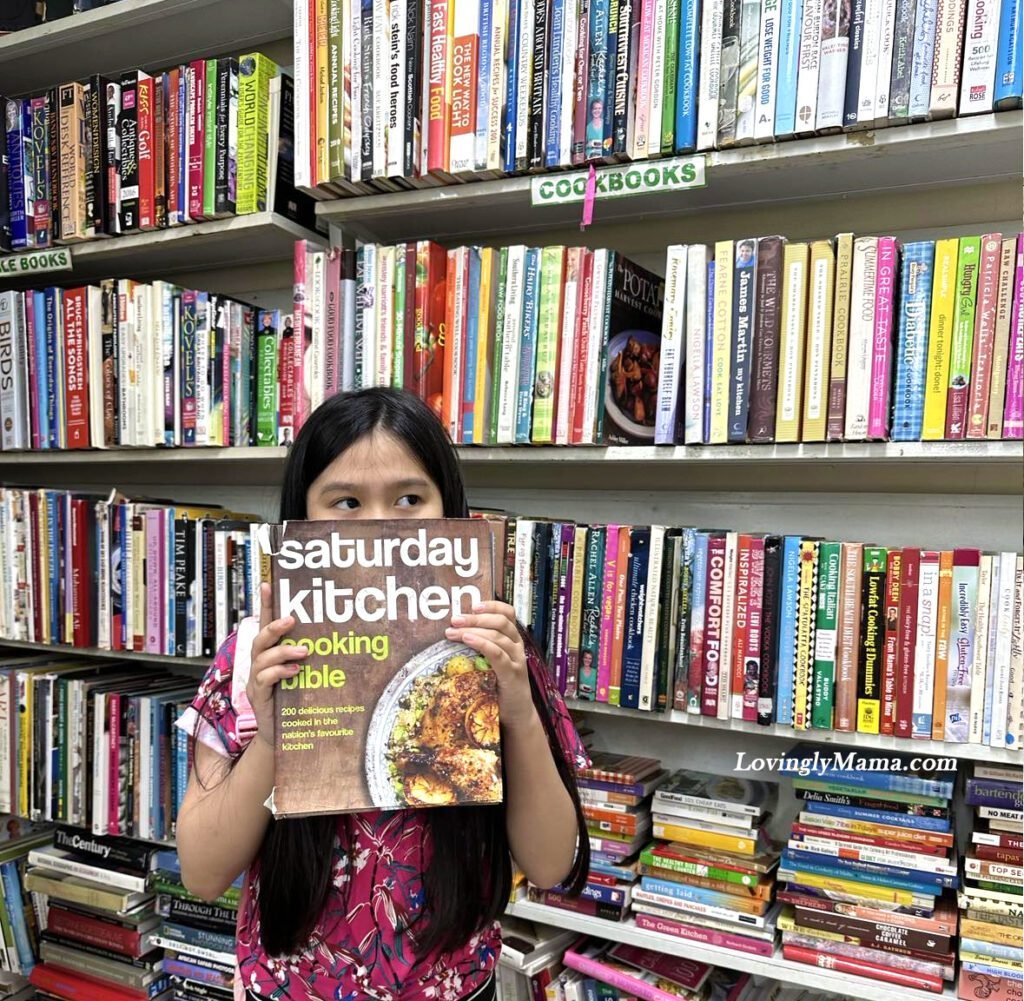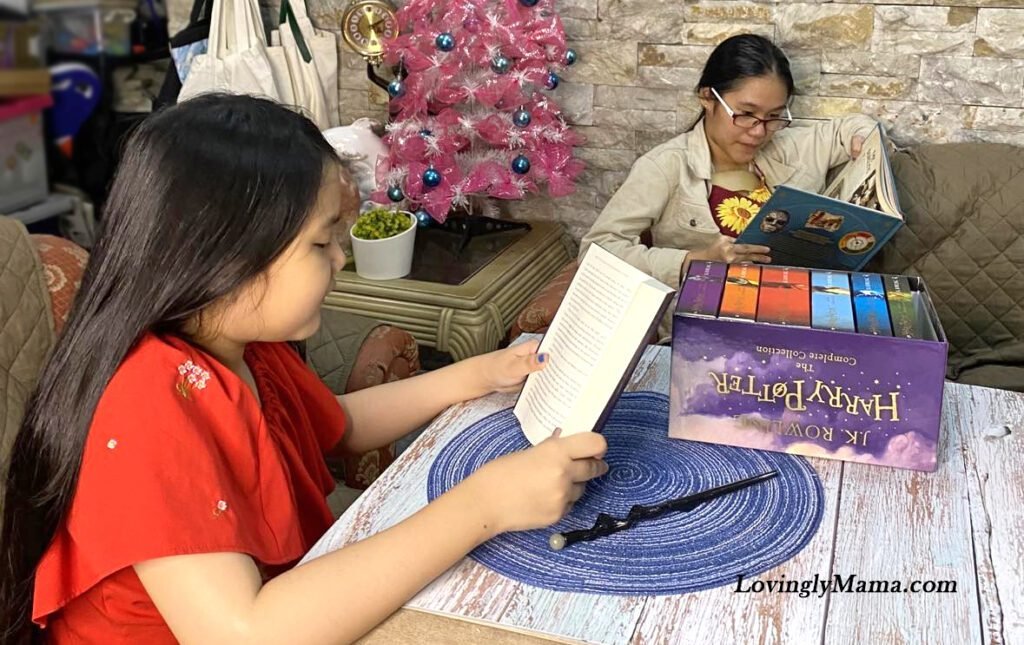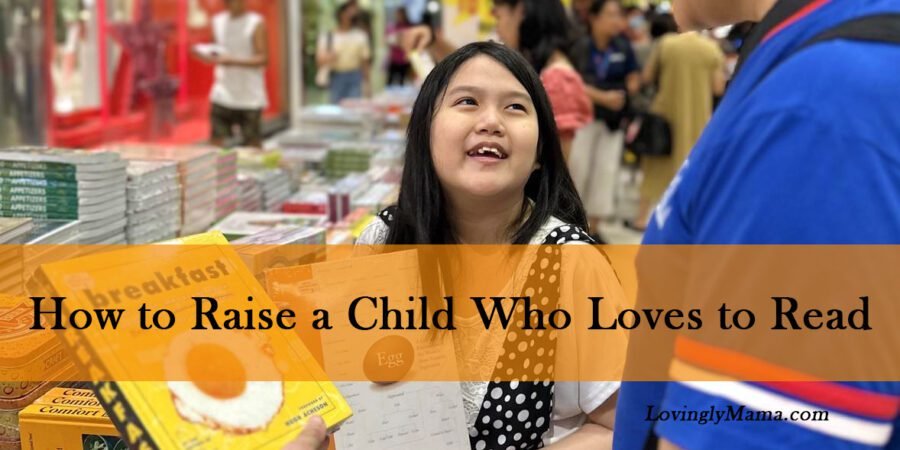Needless to say, I love to read. But growing up in a household that does not value books, I only had a Webster’s Dictionary and textbooks from my public school to keep me company. I even had to fight with a neighbor’s son because the boy wouldn’t share his storybook despite his mom allowing me to read from his library. When I learned that I was pregnant with our firstborn, I started scouring book sales and collecting baby books on different topics because I wanted to raise a child who loves to read. And since then, I have never looked back.

How to Raise a Child Who Loves to Read
Raising a child who loves to read is not difficult. Let’s look into some easy practices that foster a love for literature in children, nurturing their curiosity and imagination. Whether you’re a parent, guardian, or educator, these tips are designed to create an enriching literary environment that encourages a lifelong love of reading.
Start Early: Planting the Seeds of Literacy
- Introduce books from a young age to instill a familiarity with the written word.
- Choose colorful and engaging picture books with simple narratives to capture their attention.
- Make reading a daily ritual, incorporating it into bedtime routines or quiet moments during the day.
From the moment our eldest daughter was born, she already had a collection of cloth and board books. She was an early reader, even learning how to sign the full alphabet using the American Sign Language at 11 months. We kept building her library, picking books about different topics to ignite her passion for learning.
Lead by Example: Be a Reading Role Model
- Demonstrate your own passion for reading by letting your child see you enjoying books.
- Share your favorite stories and discuss why you love them, emphasizing the joy of reading.
- Create a family reading time where everyone can unwind with a good book.
Parents nowadays are very much into using gadgets themselves. But do set aside even just 30 minutes a day to pick up a book and read. I remember our little Shane back then wanted to know what the story in a book was about. We told her that is why learning to read is important — you will know what happens in the story even if there is no grown-up who can read for you. She took that as a challenge, a motivation to learn.
Since then, we noticed her with reading exercises just so she could learn to read words and eventually piece together simple sentences. She has never looked back.
Build a Diverse Library: Explore Various Genres and Topics
- Curate a diverse collection of books that represent different cultures, perspectives, and genres.
- Tailor your selections to your child’s interests, allowing them to explore a wide range of subjects.
- Visit the library regularly to discover new titles and foster a sense of excitement around reading.
When the kids were younger, we bought a lot of storybooks, picture books, book versions of their favorite movies, as well informational materials about the universe. There are books for their age and for older kids. Subjects range from math, science, biographical stories, crafts and activity books, and many other genres. There are even cookbooks from other countries because we believe that we learn a lot about other cultures through their food.

We were surprised at the diversity of their interests, thus, we were also encouraged to get them more books.
Make it Interactive: Turn Reading into an Adventure
- Engage your child by asking open-ended questions about the story or characters.
- Encourage them to predict what might happen next or share their thoughts and feelings.
- Incorporate interactive elements like using different voices for characters or acting out scenes.
Oh, how they love story times, especially when we do voice acting!
Create a Cozy Reading Nook: Designing a Comfortable Space
- Set up a dedicated reading area with comfortable seating, good lighting, and a variety of books.
- Personalize the space with your child’s artwork, creating a cozy and inviting atmosphere.
- Consider introducing soft cushions, blankets, or stuffed animals for added comfort.
If you have an extra room in your house, turn it into a mini-library or family center. This is what we don’t have because we do not have that space. That is the reason why our rooms have a lot of shelves.

Celebrate Milestones: Rewarding Reading Achievements
- Acknowledge and celebrate your child’s reading accomplishments, whether big or small.
- Create a reading log or chart to track progress and set achievable goals.
- Offer incentives like a special story time, a book-themed outing, or a new book as a reward.
There have been many times that we allowed the kids to buy new books as a reward for an achievement. They would excitedly bring me a pile to choose from after browsing through a bookshop.
Readers Among Digital Natives
Needless to say, we are raising digital natives. We are not the kind of parents who totally shun technology because we also find it as a valuable learning tool. But we do limit the kids’ use of gadgets to 2 hours per day. Their phones would automatically shut off once they have used up their time so they have to find something else to do. We also monitor what they access on the web.
Utilize Technology Wisely: Embrace E-books and Audiobooks
- Integrate technology by exploring age-appropriate e-books and audiobooks.
- Use interactive apps that combine storytelling with games to make the reading experience fun.
- Monitor screen time and balance it with traditional print books.

Books vs. Gadgets
The superiority of books over gadgets is subjective and depends on individual preferences and purposes. However, here are some reasons why some people prefer physical books over gadgets and why it is better to raise a child who loves to read:
- Deep Focus and Concentration: Reading a physical book often allows for deeper focus and concentration compared to using gadgets. With fewer distractions like notifications or the temptation to multitask, books can facilitate better absorption of information.
- Reduced Eye Strain: Extended screen time from gadgets like tablets or e-readers can cause eye strain and discomfort. Printed books, on the other hand, don’t emit blue light and are generally considered easier on the eyes even for long periods of reading.
- Tactile Experience: Many people enjoy the tactile experience of holding a physical book, flipping through pages, and the sensory aspects like the smell and feel of paper. This physical interaction can enhance the reading experience for some.
- Uninterrupted Reading: Gadgets often come with multiple functions and applications, making it easy to get distracted. Books, however, are dedicated to reading and don’t have the potential for interruptions from other apps or notifications.
- Collectibility and Sentimental Value: Physical books can become part of a collection and hold sentimental value. They can be displayed on shelves, passed down through generations, or shared among friends, creating a personal connection that gadgets do not evoke.
- No Battery Dependence: Books don’t require charging or access to electricity, making them a reliable choice in situations where gadgets might not be feasible or accessible. No need for an internet connection either.
- Different Reading Experience: Some would argue that the experience of reading a physical book, with its unique typography, paper quality, and layout, differs from reading on a screen and provides a more immersive and enjoyable experience.
The Parenting Journey of Raising Readers
Raising a child who loves to read is a parenting journey that is filled with discovery, imagination, and shared moments. By implementing these strategies, you’re not just nurturing a valuable skill; you’re fostering a lifelong love for literature that will enrich your child’s life in countless ways. You also help create core memories with your children.
Despite these advantages, gadgets also offer several benefits, such as convenience, portability, access to a vast library of books in digital form, searchability, and the ability to adjust font sizes or use built-in dictionaries. Ultimately, whether books are better than gadgets for reading depends on personal preferences, contexts, and the specific purpose of reading. Both have their merits and can coexist based on individual needs and preferences.


Kapag daw mahilig mag basa ay matatalino. 😊 Ang galing po kasi growing up ang kids niyo talagang nahilig na mag basa dahil din po sainyo. They love books too. Sa mga anak ko nman po ang mahilig mag basa ang daughter ko. Second born. She loves to read stories po. English and tagalog. 😉
Masaya po talaga mag basa nakakalibang madaming matutunan mas mababawasan din Ang pag gamit sa gadgets po..